We wrapped up our Palladium Chamber Series last week, that doesn’t mean we’ve finished presenting great classical music this season. We are so proud to be partnering with The Chopin Project, which has brought top pianists to the Palladium’s Steinway over the past two seasons.
This Tuesday night (4-23 at 7:30 p.m.) is another stellar concert featuring a young pianist Gramophone Magazine calls “The Star of the Future.” Igor Lovchinsky is not only a piano prodigy, and a graduate of The Julliard School, but he recently earned a Harvard Ph.D. in physics.
At the Palladium on Tuesday the Russian-born artist will be performing works by Chopin and Gershwin. For tickets and more information, you can follow this link.
I thought you’d enjoy this interview with Lovchinsky that appeared not in a music publication, but in the journal Science.
Here is an edited version of that interview. For a complete version, follow this link to the publication.
By Jim Austin
LEWISTON, MAINE—Russian-born pianist Igor Lovchinsky started playing the piano at 2 years old and was giving recitals for friends and family by the time he was 4. At 10, he won first prizes at the Eastman Young Artists International Piano Competition and the national Chopin Piano Competition of the Kosciuszko Foundation. He attended The Juilliard School in New York where he earned a bachelor’s degree, and then continued his musical education at the New England Conservatory in Boston. He has performed at The John F. Kennedy Center for the Performing Arts, Carnegie Hall’s Weill Recital Hall, and other major concert venues. Time Out voted his debut recording one of the top five classical recordings of 2008, making comparisons to Walter Gieseking and Martha Argerich.
 Lovchinsky is now enrolled in Harvard University’s Ph.D. program in physics. He is married to Alice Wang, a neuroscientist. Science Careers interviewed Lovchinsky following a performance at the Franco-American Heritage Center. This interview was edited and condensed.
Lovchinsky is now enrolled in Harvard University’s Ph.D. program in physics. He is married to Alice Wang, a neuroscientist. Science Careers interviewed Lovchinsky following a performance at the Franco-American Heritage Center. This interview was edited and condensed.
Q: Which came first, piano or physics?
A: I started off as a pianist; in fact, I didn’t even like physics until I was in my mid-20s! I grew up in a musical bubble, where everyone I knew was a musician, and the thought of doing anything else really never even entered my head. I spent all my time practicing: preparing for performances, competitions, etc. But several years ago, I got interested in science and started reading some books on my own. Before I knew it, my leisurely hobby turned into a serious hobby and I was hooked! One thing led to another, and now I’m a graduate student at Harvard, working with Professor Mikhail Lukin.
Q: What are you working on?
A: My research is focused on applying principles from quantum physics to problems in biology. In particular, I’m working on using solid-state defects in diamond (which behave very much like artificial atoms) as magnetic field sensors, with the goal of using them as little, nanoscale MRI machines that can study the structure and dynamics of single biological molecules (e.g. proteins).
Q: Juilliard is absolutely a top institution, but it is not known for its excellence in physics. How does a Juilliard graduate get into Harvard’s physics graduate school?
A: You’re absolutely right that Juilliard is not known for its science; the closest course I took to physics was art history! My physics education included a combination of self-study and courses that I took at Harvard as part of their Special Students program, where students can take courses without being in a degree program. I also worked in an astrophysics research group and took all the required standardized tests.
Q: Do you think of your move into physics as a career transition?
A: Well, my transition into physics wasn’t so much a career change as it was a second career. I never planned to give up the piano, and I hope to keep playing (at least until they stop paying me)! It’s certainly true that to have a truly successful career as a musician takes a full-time effort, and that’s simply not realistic when I spend most of my time in the laboratory. But I’ve learned to be much more efficient in my practicing and have adopted a more scientific approach to problem solving when in the practice room. For example, I always try and record myself when I practice; it’s quite amazing how differently we perceive things when listening passively as we play, as opposed to listening to a recording. Recording myself forces me to be less biased and more critical and allows me to hear many details that I would otherwise miss.
Q: Many readers of Science Careers are working to make transitions out of research and into other fields. Do you have any insights to offer?
A: This transition certainly wasn’t easy. There were obvious difficulties in learning a new field and having to catch up to people who have been doing it all their lives. But the harder part was the social pressure from people who thought it was a dumb idea and said I was crazy for giving up a promising career in music to start from scratch in science. I didn’t care, since I was determined to do it no matter what anyone said. I know many people who have tried to switch careers for completely different reasons—financial issues, pressure from family, difficulties with finding a job, etc.—and in these case I imagine it’s even more difficult to stick with it. I found it helpful to set realistic expectations and to realize that it will not be easy and that I will fail many times along the way. It’s also important to find people in your new field who are supportive but also not afraid to be honest with you.
Q: You’ve described how a “scientific approach” helps you practice more efficiently. How does your experience in music—learning it, performing, and so on—help your science?
A: Serious training in music taught me skills that I can’t imagine acquiring elsewhere. For example, every professional musician frequently finds himself in a situation in which he has to learn a new piece, or prepare for a performance on short notice and has to practice 10-plus hours per day. Concentrating for that long, with no recourse to Facebook or YouTube, does not come naturally to people, but doing this for many years taught me to shut off all distractions and focus on my work. In addition to work ethic, learning to play an instrument on a serious level trains your memory, coordination, and abstract reasoning—all useful skills that can be applied elsewhere.
Q: What about performance—on exams, public presentations, and so on?
A: Public speaking is a type of performance, and the quality of the delivery (or lack thereof) is almost as important as the content. It’s also true that performing on stage is a great way to get used to being under pressure. But there are important differences. If you have a memory slip in the middle of a performance, you can usually just put down the pedal and improvise your way out of it before most people realize anything happened. Unfortunately, there isn’t an equivalent to “pedaling-through” for a physics talk.
Q: Is there anything else you’d like to add?
A: It’s been a really interesting and rewarding experience having two very different careers. People often ask me about the alleged connection between science and art and make claims about how art is so scientific and science so artistic. But actually, I’m enjoying doing both things precisely because they are so different, and I’m not entirely sure that a deep connection exists, beyond the similarities that we discussed earlier. Maybe the connection is that you need both creativity and logical reasoning to do either one—although I’ve noticed that logical reasoning is the more rare skill to come across. Many people are naturally creative but few people are naturally logical.

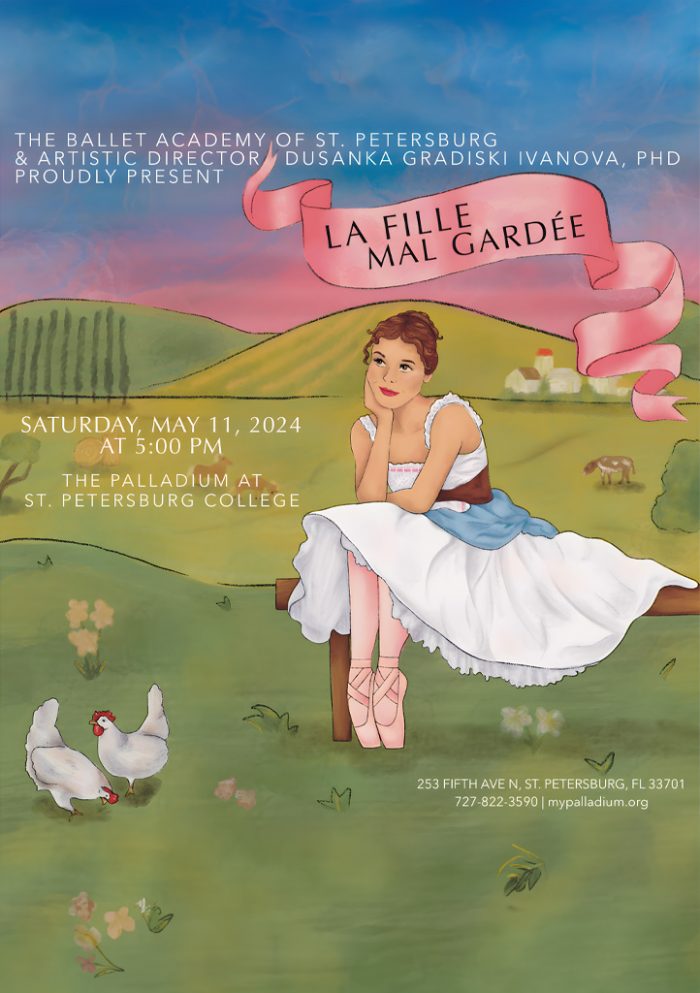

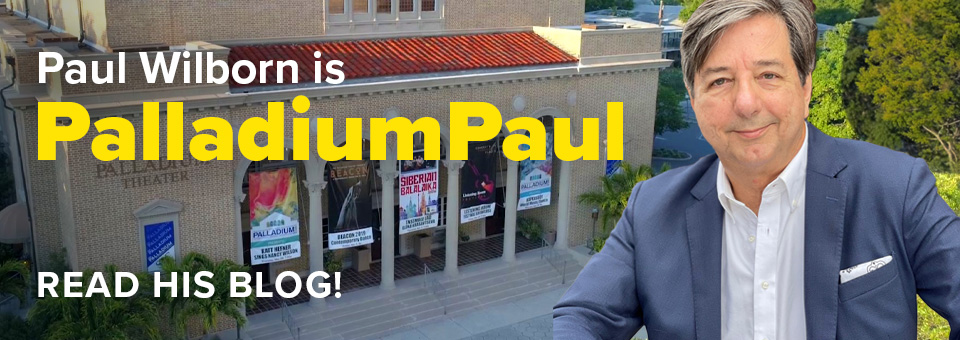
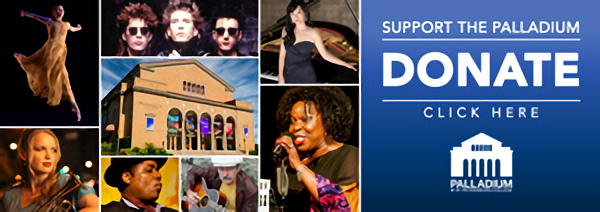

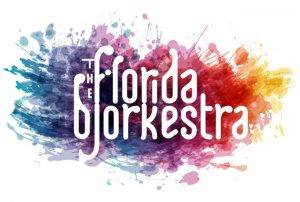
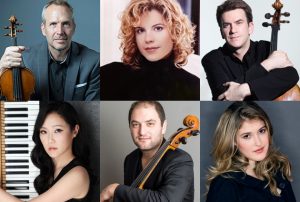
Leave a Reply